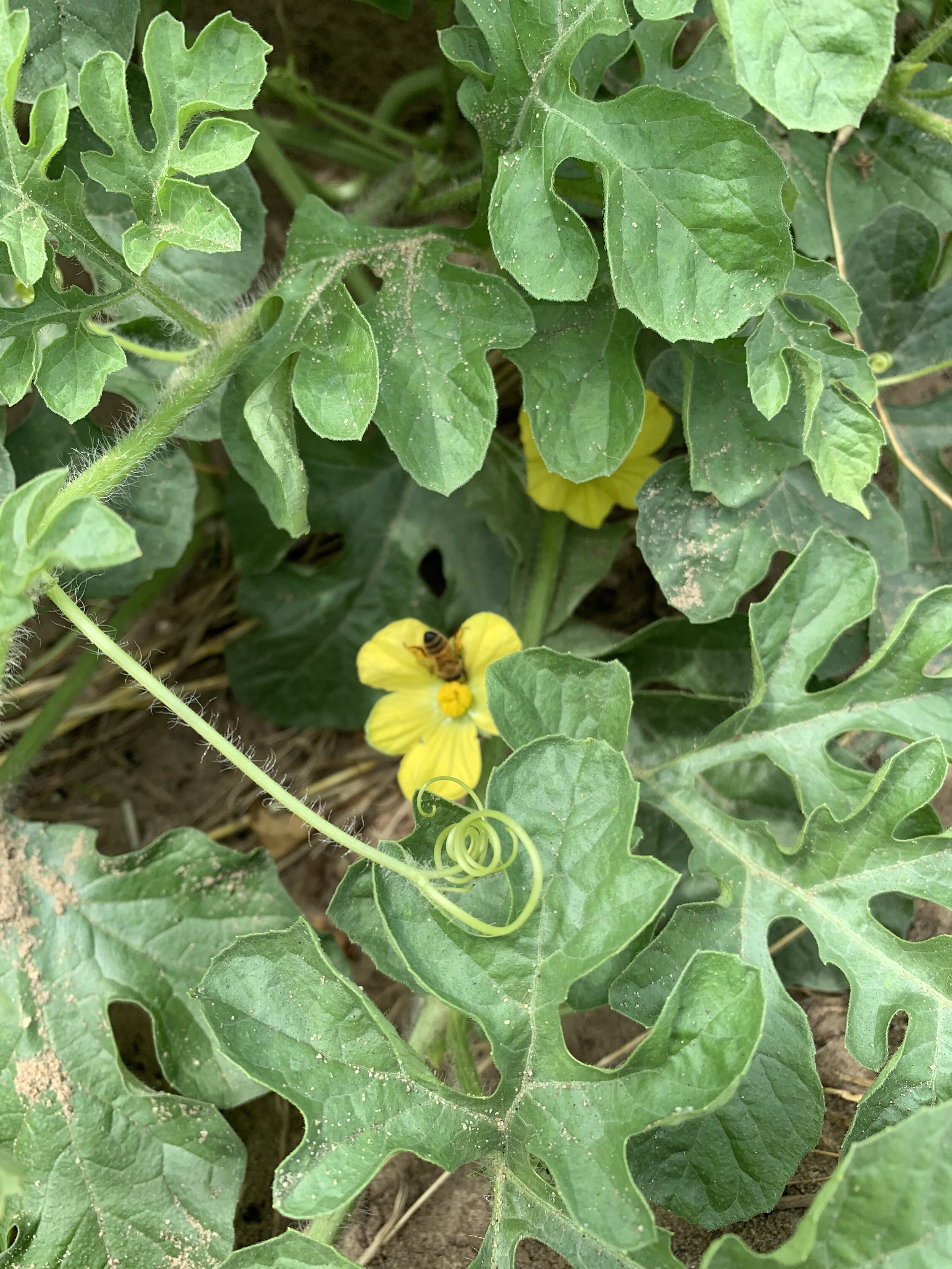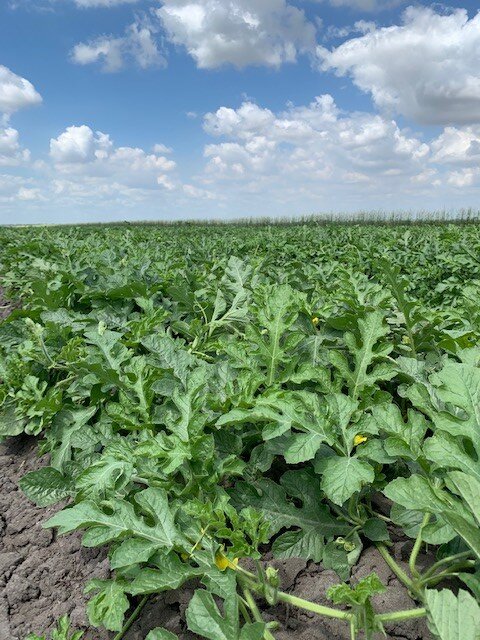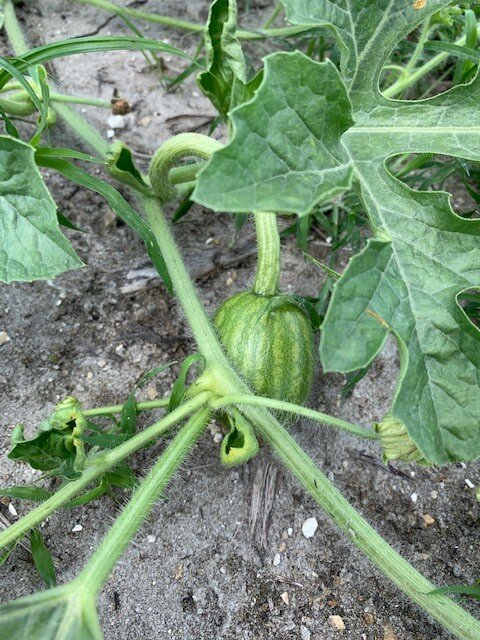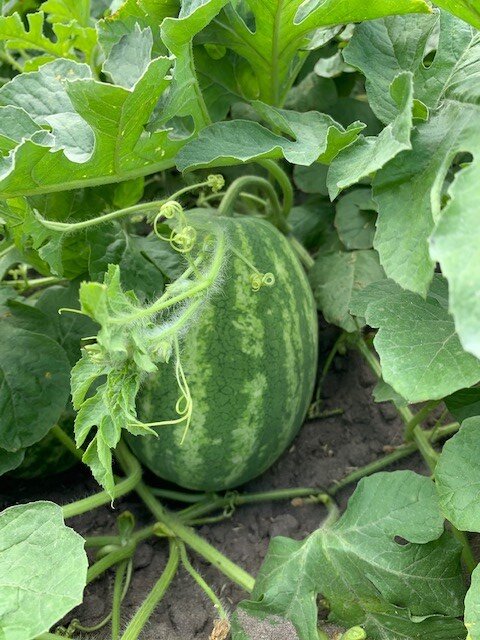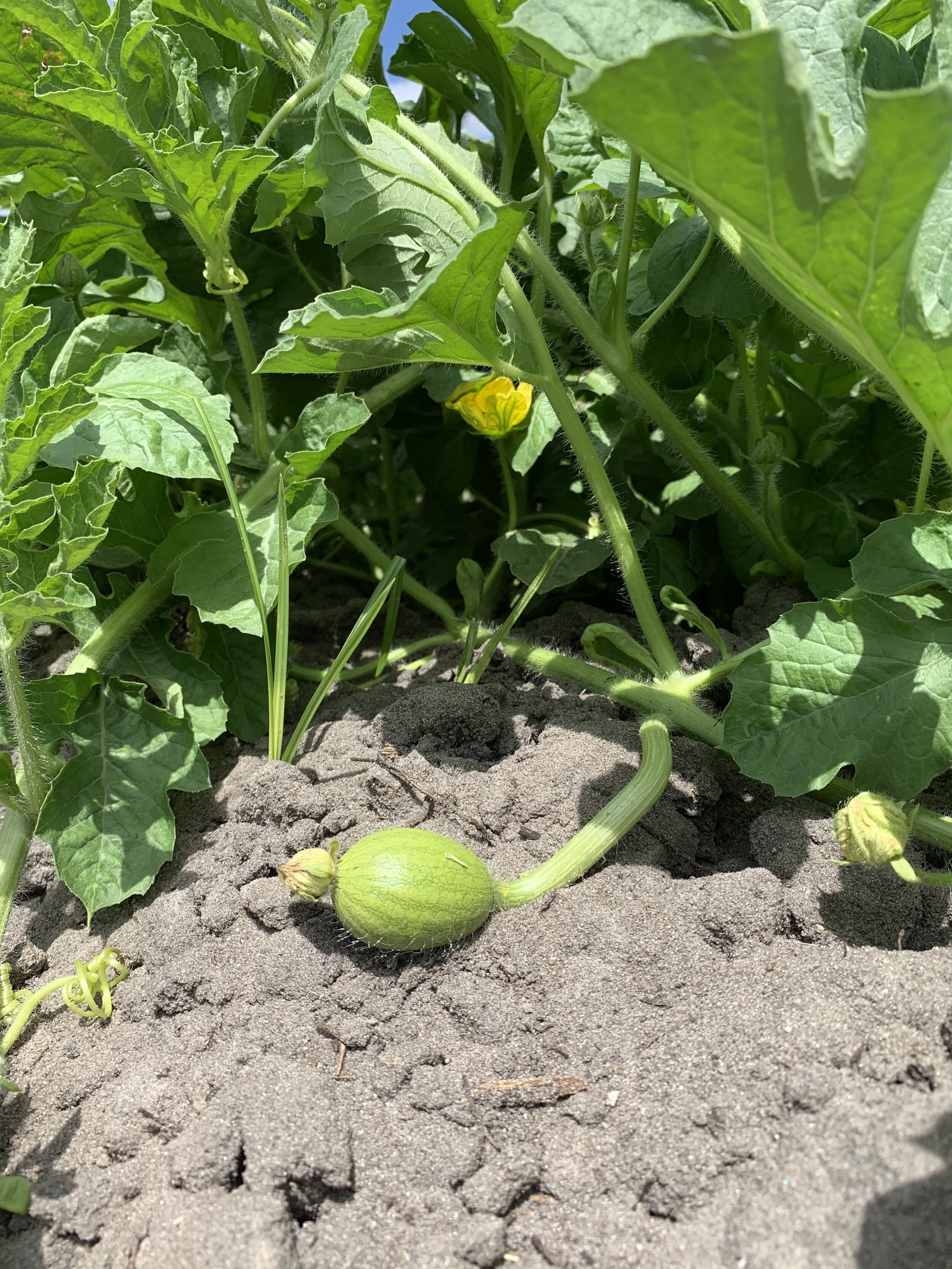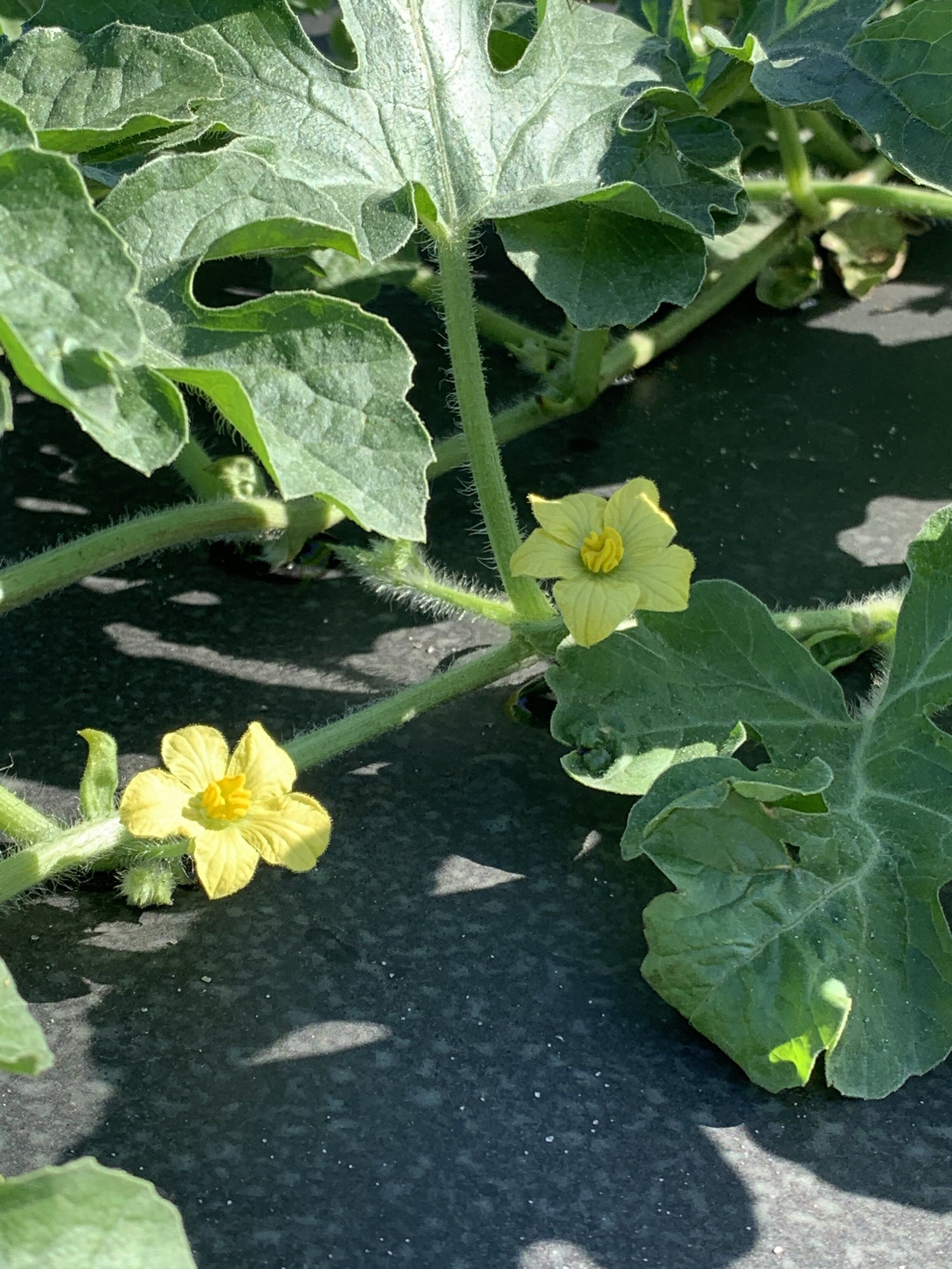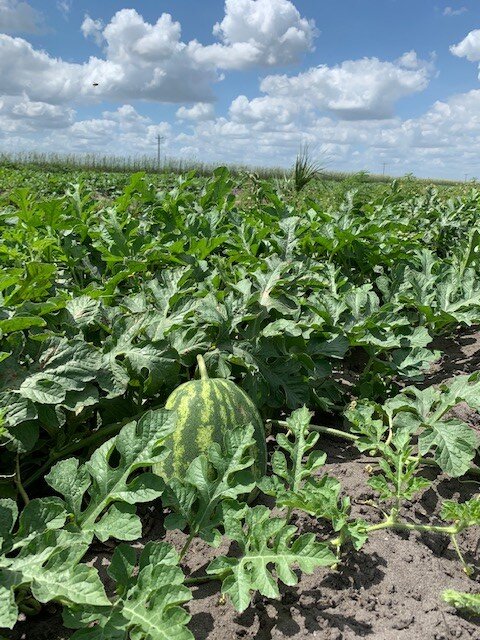Jim Rash Inc. ships farm fresh watermelons throughout the United States and Canada. Give us a call and find out what makes us different.
Preserving Our Resources
Preservation, conservation, sustainability, recycling.. all words with big impacts, if action is taken. Our philosophy is to take steps, both large and small, to reduce our environmental impact while growing our sweet, delicious watermelons.
So, what steps do we take? We are glad you asked!
We use different techniques:
Planting wind rows. Planted between the rows of watermelons, wind rows lessen soil erosion and help to reduce the amount of chemicals used. This benefits the surrounding areas and overall soil health.
Crop Rotation. Being mindful of crops grown before and after our watermelons assists in reduction of chemicals used by reducing the exposure to weeds and unwanted insects. Crop rotation also assists in developing and maintaining healthy soil.
Integrated Pest Management Programs: By implementing IPM programs, we work at each farm to identify & monitor, evaluate, prevent, take action if needed and monitor some more.. all manage pests with the most current methods while reducing risks to people and the environment.
Wireless Soil Moisture Systems: Utilizing these solar powered systems we are able to see real time data such as root level moisture, temperature, humidity, weather data, precipitation. Real time access to this data allows for better nutrient application and better water management.
Drip Irrigation. One of the largest ways our farms conserve water is using drip irrigation to deliver water to directly to the plants.
GPS Guided Tractors. Precision agriculture assists in eliminating overlap in the field. This results in reduced fuel use and increased accuracy in field applications.
Shed Construction. To reduce electricity use, sheds are constructed with translucent panels to allow for lighting during the day. Motion detectors are used in areas where translucent panels can’t be installed to only run lighting as needed.
Packaging materials. We use cardboard bins made of recycled material. We partner with suppliers that are certified through the Sustainable Forestry Initiative.
We use two types of pallets: block wood and plastic.
Block wood pallets are from a program that uses an efficient circular supply chain. Two of the goals of this supply chain are to eliminate empty transport miles and eliminate packaging waste.
Plastic pallets have a long life cycle and are able to be reused to make new plastic pallets. Jim Rash Inc will reduce 11,978 lbs of greenhouse gasses during the 2021 year by utilizing plastic pallets.
Hybrid Vehicles. With each corporate vehicle purchase, we are reviewing hybrid options that are available. Currently, 20% of our corporate fleet is hybrid.
Of course, we live by what our grandparents taught us.. take no more than we need and use it until it doesn't work anymore - then use it again for something else. Simple, common sense approaches that have worked for years.
We realize the responsibility we have to our local communities to be good stewards of the land and resources we use. Our business depends on it.
